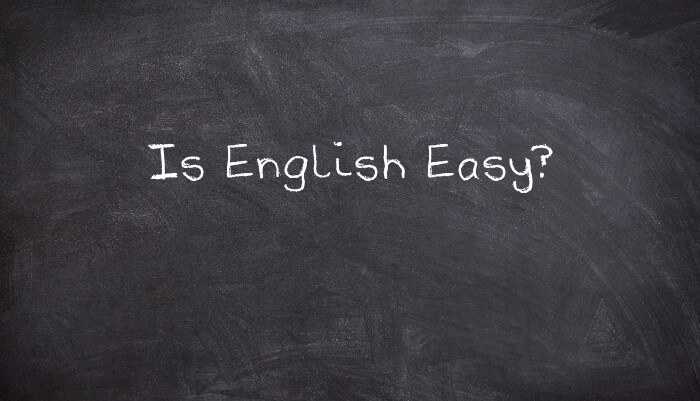There is no language that is really easy or difficult to learn in a certain manner of speaking.
I have to say it mostly depends on how far one wants to take it. How much fluency does one want to achieve? Is achieving native speaker type fluency one's desire? Is accuracy unimportant as long as one is understood and can understand? I believe accuracy is important, but just how important it could be to each English language learner would vary. Most people do want to speak correctly. How much accuracy each person achieves will vary. Everyone is, of course, different and has different needs, desires and expectations for different reasons.
Take, for example, your tutorial on relative/adjective clauses. I think that's just right for conversational and 'general speaking/communicative ability'. The Azar book I use for English grammar has a fairly good size chapter on relative/adjective clauses. Some of them are really more suited to formal speaking (articulate speaking, might we say?) and writing. They might not be used so very often. I'm not saying they aren't important to learn, but as a language learner, it would all depend on what one wants to achieve. Spending time on all those 'in which', 'of which' and 'by which' clauses might not be as important for some as for others.
Then there are conditionals. That's always something to work on. We don't often use complete third conditional sentences as English first language speakers as often as other grammatical forms. Making a complete statement with the third conditional seems to be a challenge for many. The second conditional is some times a challenge as well. I place a certain amount of emphasis on using 'wish'. I believe it is an important lexical item for overall fluency. Many have a hard time knowing and understanding what comes after 'wish' in conditional wish statements and questions. I think that this is in part because, perhaps, it wasn't covered in any previous ESL course some had taken. This, I believe would be true in some cases, though not all.
Michael Lewis states in Implementing Lexical Approach that most English language learners will not get past an intermediate level. I'm not sure if I agree with that 100%, but there would be some truth to it I believe. The question is: Do they need to get past an intermediate level and do they want to?
A Brazilian woman recently told me that someone had told her that it is wrong to say "Can I talk with *name/pronoun?" or, "Can I talk to *name/pronoun?" and that one must say "Can I speak to *name/pronoun?" or "Can I speak with *name/pronoun?"
I told her that it was/is ridiculous. There is a difference between 'talk with/to' and 'speak with/to'. It has to do with register. It's knowing what language is appropriate for what situation. This is what she said was/is important to her. Appropriate Language for the Context and Situation - And that's just the beginning. Of course, it's not easy, but it doesn't have to be hard either.
I'd just like to meet the person that told her that and failed to explain more. Then again, maybe I wouldn't.
